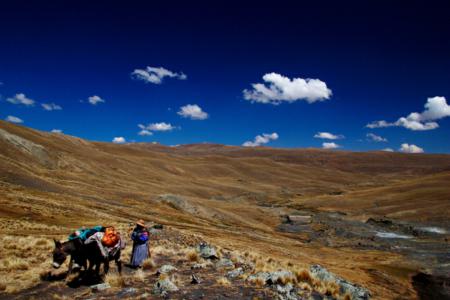The Gospel and climate change
The Gospel tells us of the greatest picnic in the Bible, 5000 people -- not counting women and children. The recording of the event is unique. It appears six times in the NT. The evangelists present it as a spring board in anticipation of the institution of the Eucharist. The evangelists want us to note well that Jesus can do strange things in order to feed his followers.
In this singular event, we Catholics see Jesus wanting to feed his people spiritually and physically. At least Pope Francis would like us to see the connection between the two. He pointed out climate change is a significant worldwide problem affecting the poorest of people in his Encyclical "Laudato Si.'" The encyclical was hardly in print when significant challenges started to emerge as a response, especially from the West and here in the Unites States. Pope Francis said that he would study those objections before coming to the U.S. in September.
The objections seem to boil down to two concerns. Is climate change a usual occurrence over a period of time? If not, and if there is a human contribution to this phenomenon, how do you correct it? The encyclical voices the opinion that human beings may not be the only cause of climate change but it seems -- according to over 90 percent of scientists -- we can help in its reduction. Secondly, the solution needs everyone's participation to solve it.
Pope Francis visited three countries in Latin America a few weeks ago. One of them was Bolivia. I was stationed there for two years in a village of a 1000 people about 50 miles outside the city of Santa Cruz, where he met the Bolivian president. That stirred up all sorts of memories -- especially when "Laudato Si'" speaks about the need for drinkable water as a human right.
The town I lived in was built on a bluff about half mile from the river. The women carried water from it on their heads in five gallon olive oil tins. Girls learned to carry things on their heads at a young age. They may have been poor, but they walked with a dignity, poise and pace that would be welcomed in the highest of social settings. When John F. Kennedy's Alliance for Progress was enacted, the town got a water tower. Painted on it, there were two clasped hands with patriotic bracelets on the wrists. One had the colors of the U.S. and the other the colors of Bolivia.
When the half-mile walk ended, the women still had to drink the water from the faucet. I would filter and boil the water because I did not want to get hepatitis. When I came home, the idea of putting a glass under the faucet marveled me. I couldn't even think about it. The whole experience made me very sensitive on our use of something we take for granted.
I internally react when I see men leaving the water running as they shave. Even more so when I see automatic lawn sprinklers running when it has been raining all day. Am I silly? In many ways we use water as if it were limitless and expendable. I suppose anyone who has had an experience of the well running dry thinks my way. Certainly Pope Francis does.
A bold cultural revolution may seem impossible. On the contrary, "All things are possible to God" if we want to work at it and trust in the Lord.
Jesus said to Philip, "Where can we get enough food for them to eat?" Philip realistically responded, "Two hundred days wages worth of food would not be enough for each of them to have a little." "Have the people recline," said the Lord. Jesus gave thanks, "Laudato Si'" and distributed the food. And there was enough left over to fill 12 wicker baskets.
It was many years ago that Pope John Paul said, "Christians in their turn realize that their responsibility within creation, and their duty towards nature and their Creator, are an essential part of their faith." We have come a long way from that bucolic hillside picnic. But the message is still the same. The planet is the home of all of us, and all of us have the unique dignity of being human.
And of course, Jesus can do strange things to feed his people.
FATHER MCLAUGHLIN IS A SENIOR PRIEST OF THE ARCHDIOCESE OF BOSTON IN RESIDENCE AT ST. AGATHA PARISH IN MILTON.
- Father McLaughlin is a senior priest of the Archdiocese of Boston in residence at St. Agatha Parish in Milton.



















